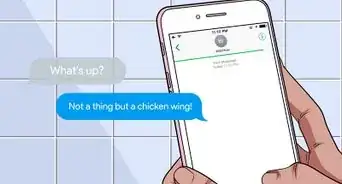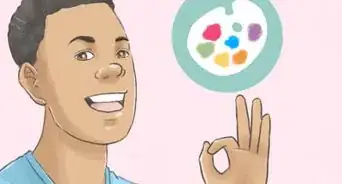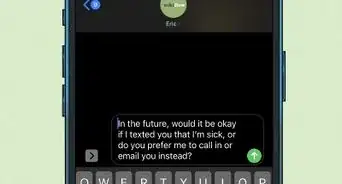X
wikiHow is a “wiki,” similar to Wikipedia, which means that many of our articles are co-written by multiple authors. To create this article, 28 people, some anonymous, worked to edit and improve it over time.
This article has been viewed 145,285 times.
Learn more...
Do you hear yourself saying "I don't know" to the point where you feel like people think you're a dull, blank slate? Many times, people fall into this habit out of laziness or apathy. How do you overcome the habit now that you are feeling more vivacious and engaged? This article will provide you with some inspiration!
Steps
-
1Consider how often you say "I don't know". Keep a journal or log of how often you use this phrase. It doesn't have to be elaborate--just somehow mark every time. The back on a notebook, in a notepad, or whatever works for you.
- The idea is not to somehow feel terrible about yourself; by knowing how often you do this behavior, you can both become more aware of your words as well as track your successful progress over time.
- Remember: focus on awareness of this habit...you do not have to punish yourself in order to break this pattern.
- It can be helpful to make a note of when, where, and why you said "I don't know". It can help to see patterns. For example:
- To a certain person more than anyone else.
- When you feel rushed or stressed
- In math class
- When it comes time to choose something for lunch.
-
2Resolve to find a replacement phrase for now. Tell yourself that you will not say "I don't know" - unless you have listened carefully and really do not know. Instead, try saying something - anything - else.
- It might be helpful to come up with several different phrases to say instead, to avoid slipping into making any of the replacement words becoming a habit as well. Some examples include: "Hmmm." Or, "Not sure." Or, "Maybe". Or, "What do you think?" Or, "I would like to hear more about that before I commit to an answer". In the latter case, asking a question back to the person can cause them to think a little more about what they've said, buying you some thinking time, too!
Advertisement -
3Recognize that it is perceived as lazy because it is lazy. The person you're talking to will know instantly that you simply don't want to think about what they've said, or that you're not even interested in talking to them. Once you say "I dunno," you've killed the conversation. Where does the other person go with that? Do they explain whatever it is that "you dunno"? You would find it rude, probably. Just as rude as shutting down the conversation with "I dunno."
- If you really don't know what to say about the subject, why not say "I'm not comfortable talking about that right now (you can follow with "I just don't know enough about it" or "I haven't had time to think it through"). Can we talk later or talk about it tomorrow/next time?"
-
4Listen actively. Instead of thinking about other things, staring off into space, or figuring out what you want to talk about next, try really listening to your conversation partner. Ask a question or two about what they're saying - anything is good. Try, "Is that right?" when you notice that the other person seems to be waiting for you to say something. In addition, consider asking questions that help you learn. For instance:
- "So what do you think about the plot of the movie?" "I'm not sure I understand why X chose to do Y. Did you catch that?"
- "What do you know about that cutie in Calculus?" "Not much..didn't he say he was from Nebraska?"
- "Why was Tamara so upset last night?" "Did you ask her? She ran right by me!"
- "Zack, what did you get for question 3?" "I had trouble, Miss Sanchez. I had trouble understanding what Hamlet meant here..." (You show that you've thought about the work, and your teacher will likely not give you a hard time. Listen close to the sigh of relief from other students around you!
-
5Think about what you're asked. If you don't have an answer immediately, rather than saying "I don't know," instead, just pause. Think. If you're really flummoxed, beg your conversation partner's pardon by saying something like, "You know what - I don't think I ever really thought about it until now." At least this lets your partner know you heard him or her, and that you are actively thinking about the question rather than just automatically popping out with "I dunno."
-
6Recant it if it comes out. "Recant" means "take it back". And don't get flustered over it. If you blurt out the unthinking "I dunno," just immediately say, "Wait... I think... Let me think about that for a second." Just take it back. Your conversation partner will be very generous about it, especially if they think you want to consider whatever it is that they were saying. Nothing is better in a conversation than making the other person feel as if you think whatever they're talking about is very important and worth thinking over.
-
7Accept that responding to people with "I don't know" is a bad habit and will take some time to break. Don't be too tough on yourself if you find yourself still saying it from time to time. Read wikiHow's article on how to break a habit for more ideas.
Advertisement
Community Q&A
-
QuestionHow do I interpret "I don't know about you, but I'm going to do it"? Is this a "don't care about my feelings" statement?
 Community AnswerI think it's about not giving up, and not comprising on something even if the majority tells you it won't succeed.
Community AnswerI think it's about not giving up, and not comprising on something even if the majority tells you it won't succeed. -
QuestionWhat if I genuinely don't know and don't want to appear as uninterested?
 MidnightBlue1_1Top AnswererYou should tell the other person that you don't know much about the topic that they're talking about and would like to listen more about it. While he or she is talking, add things like " Oh, I didn't know that!" or " That's interesting."
MidnightBlue1_1Top AnswererYou should tell the other person that you don't know much about the topic that they're talking about and would like to listen more about it. While he or she is talking, add things like " Oh, I didn't know that!" or " That's interesting."
Advertisement
Warnings
- Do not get into the habit of never admitting that you don't know something. Moderation and insight are key.⧼thumbs_response⧽
Advertisement
About This Article
Advertisement
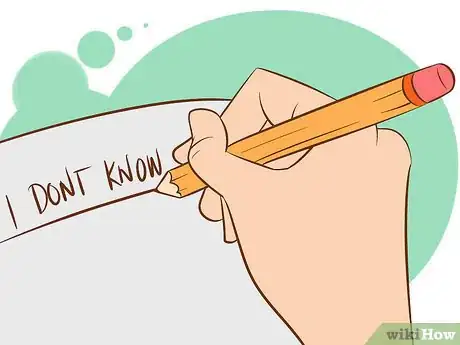
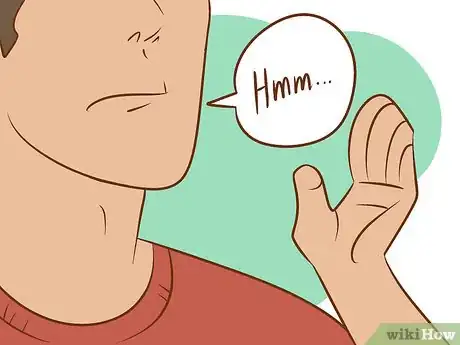




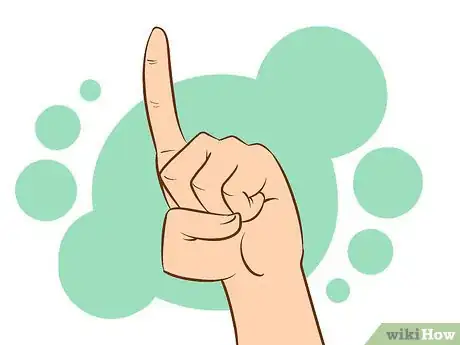





-Step-11.webp)
